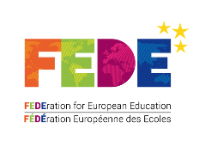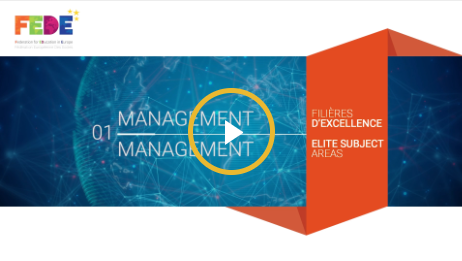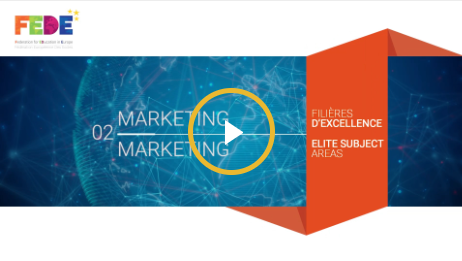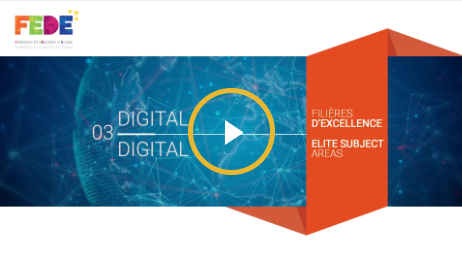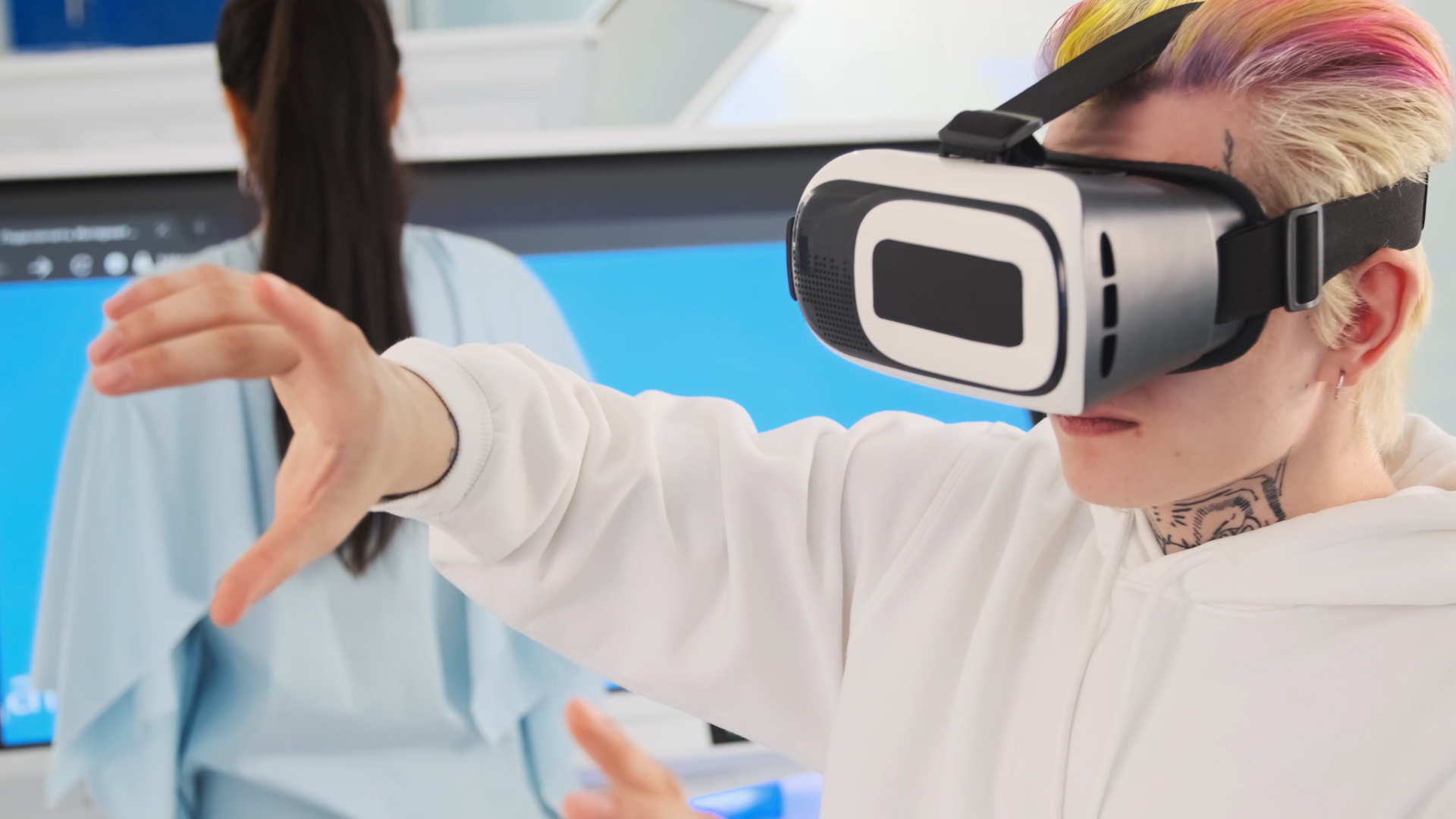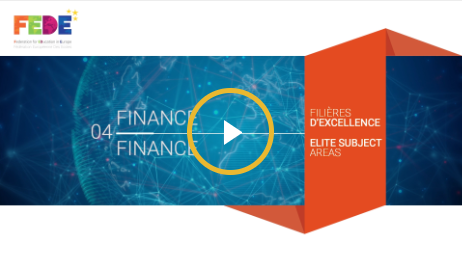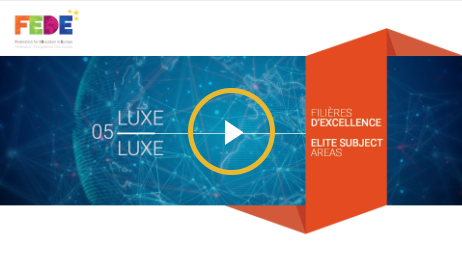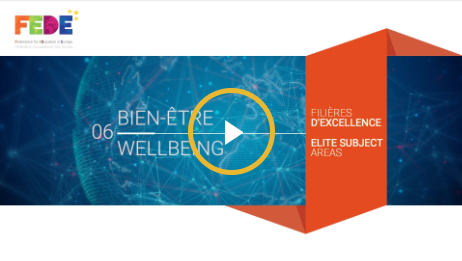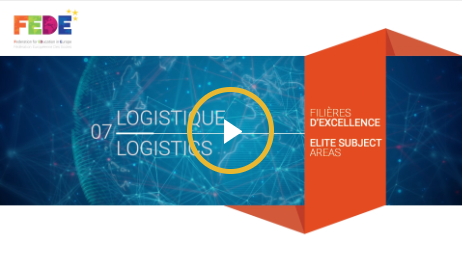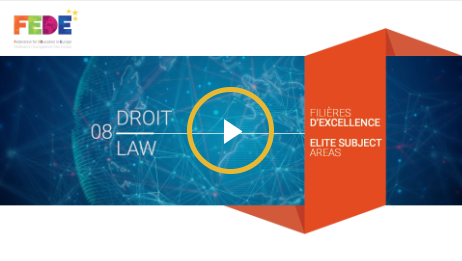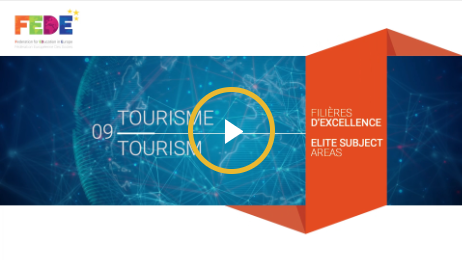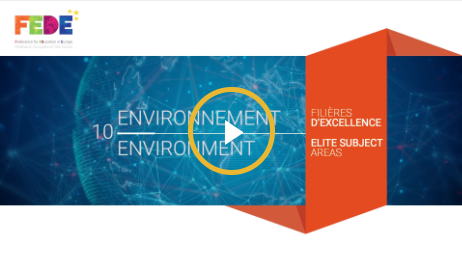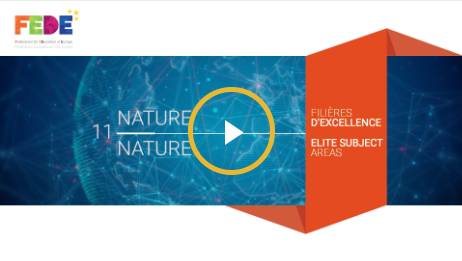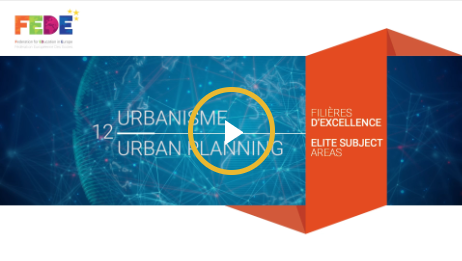OUR DEGREES
The FEDE offers over 170 European degrees in 12 elite subject areas, all of which are veritable career springboards. FEDE degrees are internationally recognised by professionals, recruiters and job market actors – the very people by and for whom they have been designed.
Constantly updated to match developments in the job market and anticipate the latest recruitment needs, FEDE European degrees meet the needs of students and prepare them for contemporary and future job roles.
Designed by teams of teachers and researchers in full compliance with European directives, FEDE European degrees are only available at FEDE member institutions.

Graduating with a FEDE degree means successfully entering the job market or pursuing further study in universities or at other higher educational institutions.
FEDE graduates also contribute to the European Project and uphold European values. FEDE members and their students believe that Europe will always stand for progress and future-oriented action.
FEDE degrees
All FEDE European degrees of the same level are based on an identical teaching framework:
– a common teaching module: European Culture and Citizenship;
– study of at least one modern European language in addition to the student’s mother tongue;
– specialised teaching modules to provide students with solid professional skills;
– work experience to allow students to put their theoretical skills into practice on the ground: supervised projects, essays, surveys, practical exercises, internships, simulations and professional role-plays – all designed to immerse the student in the world of work.
All FEDE degrees are based on the European Credit Accumulation and Transfer System (ECTS) and comply with the standards of the European Higher Education Area (EHEA).
The FEDE degree programme levels:
OUR 12 ELITE SUBJECT AREAS
AREA 1: MANAGEMENT
Management is the strategic piloting of collective action within an organisation. It covers the full range of processes (planning, distribution of tasks, leadership and oversight) used to ensure objectives are met.
Management covers all parts of an organisation, from human resources, administration and finance to production and development. Good management aims to effectively and responsibly manage resources.
AREA 2: MARKETING
We are living in an age of digital technology and social media in which data management is of great importance for the numerous professional sectors that are undergoing technological, economic and social change.
Companies need staff who can keep them up to date with the latest technological developments – staff who are flexible, creative, lively, rigorous and possess both excellent people skills and the ability to work well with numbers.
AREA 3: DIGITAL
New technology has transformed how we live in the contemporary world. Organisations are increasingly putting interconnected digital platforms, open sources solutions, cloud computing and mobile technology at the heart of their activities.
Employers need staff possessing digital and technological skills who can adapt to new business challenges and changing social relations and effectively apply IT expertise to functional, human, financial and administrative projects.
AREA 4: FINANCE
A key economic actor, the financial sector is highly dynamic and adaptable. Banking, insurance and real estate offer numerous front, middle and back office opportunities with excellent prospects.
Staff in these sectors must be versatile and possess highly specific technical skills. In today’s increasingly globalised economy, international skills are also a must.
AREA 5: LUXURY & CULTURE
Jobs in creative arts, culture, luxury and artisanship require real creative passion. Artists, artisans and designers combine artistic talent and technical skills in a range of areas, from theatre, fashion and design to advertising and the digital arts.
Actors in these sectors require excellent general knowledge along with sound interpersonal and organisational skills, allowing them to coordinate projects by drawing on administrative, marketing and legal knowledge to promote and sustain the creative arts and heritage.
For these creative professionals, technical know-how must be combined with powerful innovation to successfully achieve cultural and creative goals.
AREA 6: SPORT & WELLNESS
The health and wellbeing sector is fast growing and offers a diverse range of opportunities. The goal is to take care of others and oneself – be it through sport, health, society or education –, leading not only to personal development but also to the construction of a society that cares for its citizens.
For many professionals a career in this sector is not ‘just a job’ but also a lifestyle choice. Careers in health, wellbeing, society and education requiring a mixture of technical skills and knowledge as well as strong values and commitment to helping others.
AREA 7: LOGISTICS
Transport, logistics and quality assurance are key sectors within organisations, ensuring optimal coordination of supply and demand. The key goals are optimised flow of products, materials and information, fluid administrative, organisational and management processes and cost reduction.
New technology and a shift to project-based functioning have had a profound impact on jobs in these sectors, which require both technical and interpersonal skills.
AREA 8: LAW & SECURITY
Les organisations, entreprises, institutions publiques, associations et ONG sont en recherche de profils fiables maîtrisant les principes de l’éthique et de la déontologie.
Dotés de compétences solides en management et d’une excellente culture générale, les défenseurs des droits humains, de la démocratie et de l’état de droit sont polyvalents et passionnés. En prise avec les enjeux sociaux et politiques, ils ont vocation à agir dans l’intérêt général, afin de garantir la sécurité et la liberté des personnes physiques et morales.
AREA 9: TOURISM
In today’s context of global economic growth, the tourism and leisure sector is both highly dynamic and increasingly segmented, requiring professionals to develop ever more personalised products that respond to growing demand for responsible tourism and collaborative consumption.
If they are to meet the expectations of an increasingly demanding clientele, professionals in the sector must have excellent customer service skills, speak several languages, adapt quickly and be able to manage unexpected situations.
AREA 10: ENVIRONMENT
Sustainable development covers environmental, social and societal factors, focusing on the promotion of a balanced world economy.
Natural resources, the environmental impact of human activity, the movement of goods and people and natural and reactive behavioural changes are all important issues in this approach that emphasises solidarity between and within different parts of the world.
Organisations engaged in the sector use coordinated, innovative practices to further sustainable, responsible progress that respects diversity.
AREA 11: AGRICULTURE & NATURE
Agriculture and farming are essential in managing our relationship with nature. They also have a major impact on the way our societies work at the political, economic and human levels.
New technology has revolutionised the sector and, with increasing demand for animal wellbeing and responsible production, aspiring nature, farming and agriculture professionals must possess both specialist expertise and sound economic know-how, such as solid administrative, consulting and commercial strategy skills.
AREA 12: URBANISM
Design, construction, creation and renovation are key concepts in these sectors that combine technical skills and creativity.
In years to come, jobs are likely to be plentiful in the construction and interior decoration industries, and particularly in renovation. From project management to engineering, urban planning and land use roles are strategic in nature and require excellent technical skills.
*An accredited degree is an exclusive, European Higher Educational Area-compliant and ECTS-granting programme put together for an institution wishing to offer a qualification in a highly specific or niche subject area.
Find out more here: accreditation.
